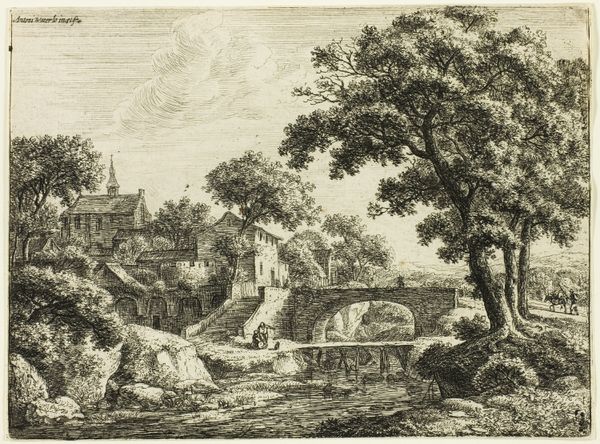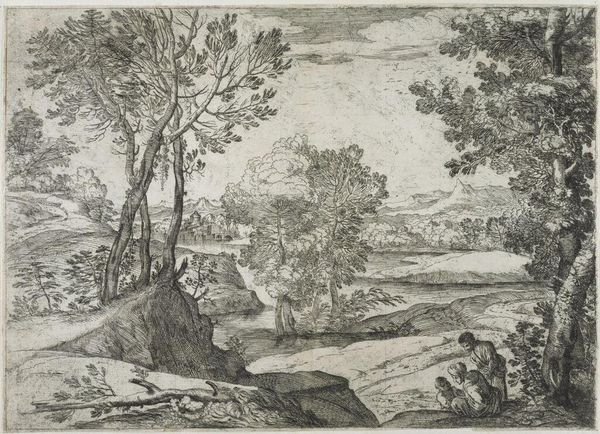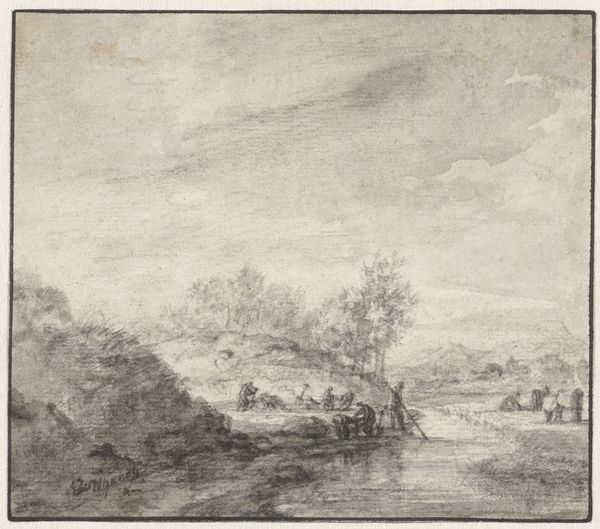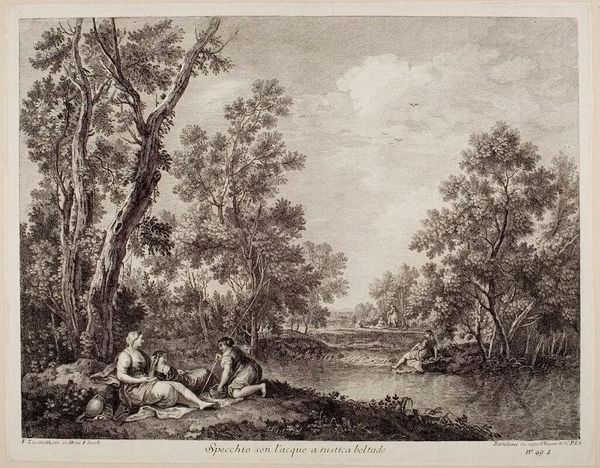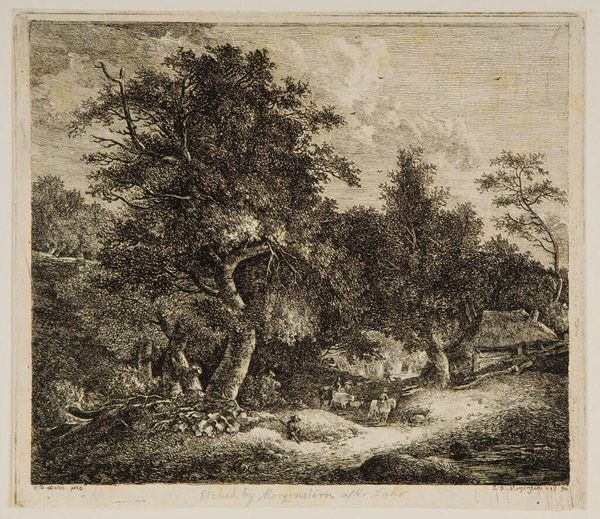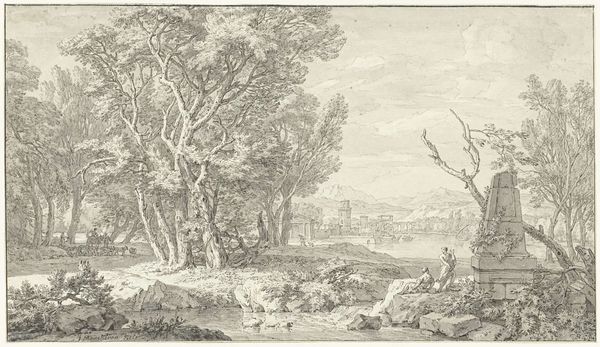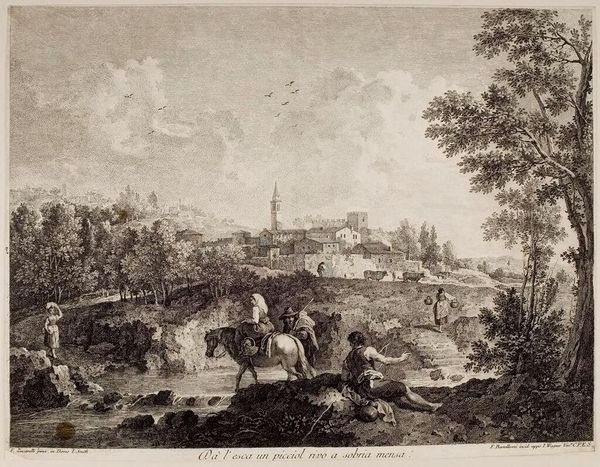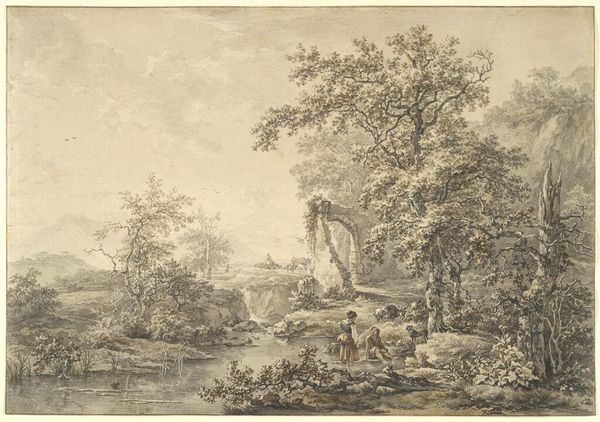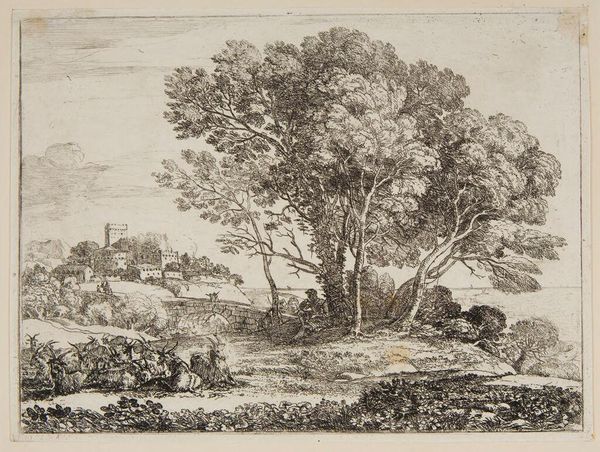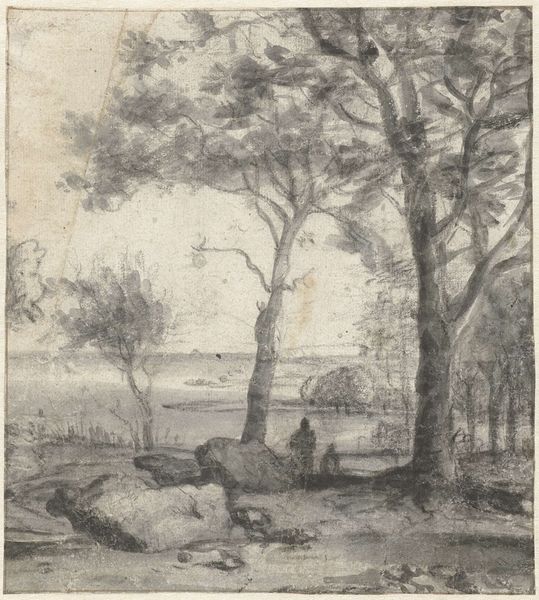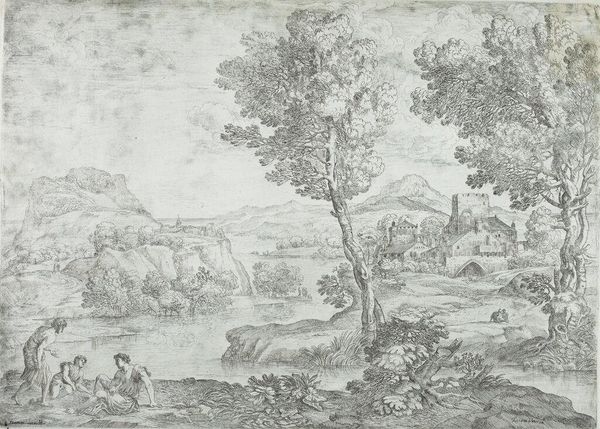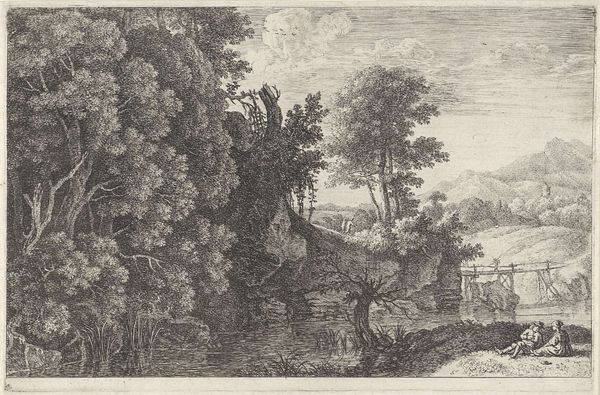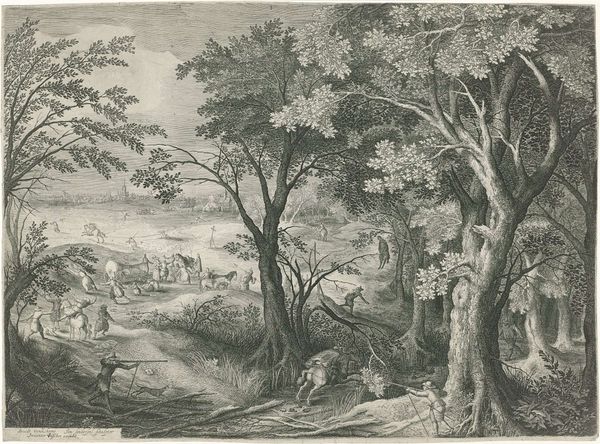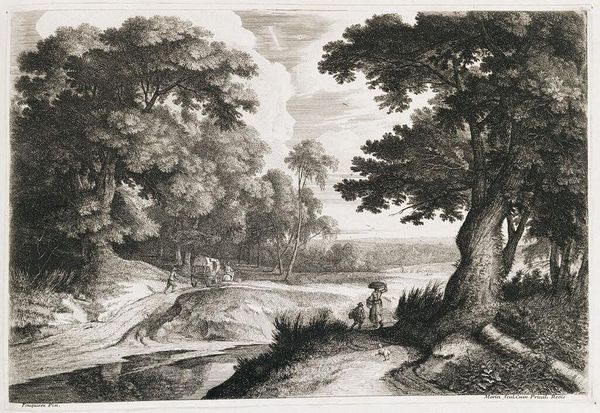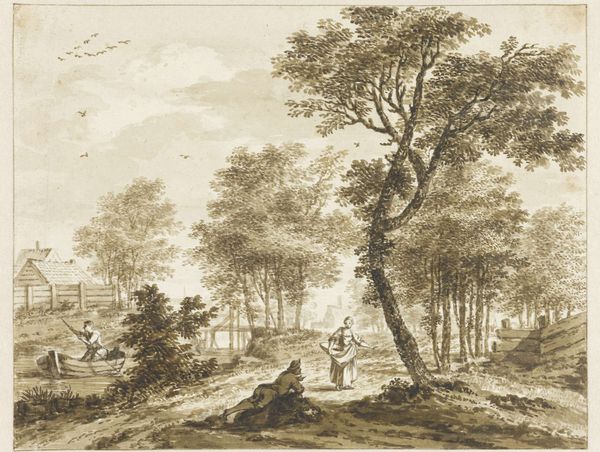
oil-paint
#
allegory
#
baroque
#
oil-paint
#
landscape
#
figuration
#
oil painting
#
roman-mythology
#
mythology
Copyright: Public domain
Editor: Claude Lorrain’s 1654 oil painting, "Apollo Guarding the Herds of Admetus," seems steeped in a tranquil melancholy. There’s a golden light that almost feels like a memory. What draws you into this scene? Curator: The whole thing is a gentle paradox, isn’t it? Apollo, the god of light and music, reduced to shepherding! It whispers of exile, of divinity touched by earthly limitations. The baroque drama is subdued here; it's a landscape painted with a mythological wink, like a celestial body slumming it in the countryside. I imagine Lorrain chuckling as he painted this. What do you make of the light, playing across the leaves and water? Editor: It feels like the whole scene is bathed in nostalgia, as if time itself is softening the edges of reality. I hadn’t considered the irony of Apollo’s situation. Does the setting contribute to this feeling? Curator: Absolutely. Lorrain wasn’t just painting a backdrop; he was building a stage for the myth. Those classical ruins hint at a grander, perhaps lost, age. The serenity is deceptive – underneath, you sense the weight of history, the echoes of stories. Is it melancholic, or simply reflective, do you think? It could be just that the cows don't appreciate his virtuosity, and he misses his old haunts! Editor: I think reflective suits it better now. It's not just sadness, but a thoughtful acceptance. Curator: Indeed, like a muted symphony of light and shadow, myth and reality. Makes you wonder what kind of music Apollo’s playing for those cows. Perhaps a mournful ode, or a hopeful pastoral tune… Editor: I’ll never look at a landscape the same way again. Thanks, that was great!
Comments
No comments
Be the first to comment and join the conversation on the ultimate creative platform.
